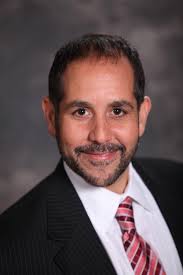But why did I have to ask?
Anticipating Your Customers’ Needs
 I recently received an e-mail alert from my credit card company, with the word “URGENT” in the subject line. Here’s how the message read:
I recently received an e-mail alert from my credit card company, with the word “URGENT” in the subject line. Here’s how the message read:
Transaction for $250.00 at a discounted department store was declined on or around 10/07/2012 in DADE CITY, FL United States.
Since we live in Maryland and we were definitely in our hometown on said date, this was clearly a case of fraud. Fortunately, credit card companies are becoming more adept at catching and addressing these situations. When I spoke to an agent named Vinayak at my credit card company, I learned that this transaction had been a “swipe” at a Walmart retail store, which meant someone had actually cloned my card.
Amazing and disconcerting, right? I wasn’t distressed though, especially since a) it was caught before any real damage was done; b) Vinayak was courteously handling the situation for me and; c) they offered to overnight a new card to me.
But as I was on the phone with Vinayak I did begin to think about all the work a new card (and new account number) would create for me. I suddenly remembered that I authorized several merchants to auto-bill me each month – from E-Z Pass and Netflix to my cable and phone companies as well as many others. This meant I would have to go through recent statements, line by line, and figure out which merchants had me on a monthly auto-pay program.
Worse, I’d need to update my online profile with several companies such as PayPal, Amazon, Groupon, Costco and many more. The situation had quickly gone from a breeze to a real pain. Then my mindset shifted from “It’s all on me” to “Maybe Vinayak can help.” As we were nearing the end of our call, I asked if there was an easy way for him to filter out merchants with recurring monthly charges. He said there was, asked me to prepare pen and paper and proceeded to list seven such companies as well as the 800 numbers for six of them.
So what did Vinayak miss?
Yes, Vinayak’s ability to provide me with the names and numbers of these companies was certainly a relief and a time-saver. However it also got me curious about something: Why did I have to ask? With fraud so rampant, credit card companies must encounter this same situation hundreds — if not thousands — of times each day. Why wasn’t Vinayak trained to proactively offer that specific service? How many victims wouldn’t think to ask and would wind up spending hours conducting this research on their own?
The technology required to help fraud victims in this manner already exists! And it’s low-hanging fruit when it comes to meeting cardholders’ needs. Banks could easily include an offer to provide this information with their notification e-mail. If he’s on the ball, Vinayak, who may very well handle dozens, if not hundreds of these calls a day, will make it a policy to provide this information to the next caller he helps. And if he’s really a go-getter, he’ll suggest that the folks sitting around him follow suit. Or maybe he’ll suggest it to the bosses and get a new policy instituted.
Anticipating – or responding to – customers’ needs is one of the pillars of providing an impeccable customer experience; engineering experiences that exceed expectations. What does your company do to anticipate customers’ and clients’ needs? I’d love to hear about your best practices – what is it you do that really leaves your customers feeling completely taken care of; as if you’ve thought of everything?
Your thoughts? (Look for “Leave a Reply” below, or click here)
© Copyright 2012 to Present – Driven To Excel, Inc. All Rights Reserved.

















